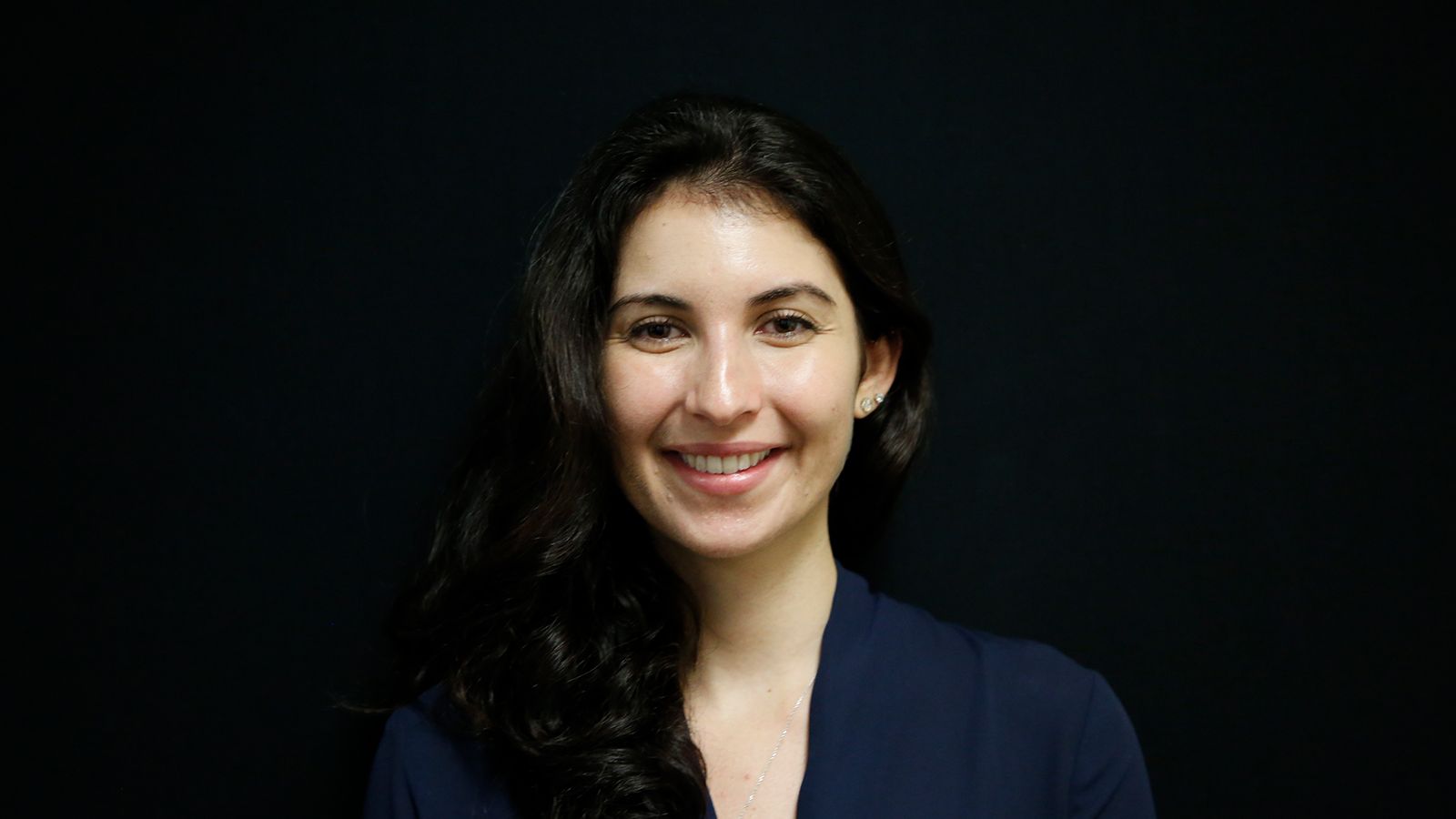For her master’s thesis at Hunter, Alyssa Basmajian studied a little-known side of an explosive issue. She examined the emergence of the abortion doula, a volunteer trained to offer support, care, and information to anyone seeking a pregnancy termination.
Now finishing her first year in Columbia University’s Sociomedical Sciences PhD Program, Basmajian is researching the same subject for her doctoral dissertation. Upon winning acceptance to Columbia last fall, she received the National Institute of Health’s five-year Fellowship in Gender, Sexuality and Health. This spring she won another highly coveted prize: a three-year National Science Foundation Graduate Research Fellowship. Both fellowships include tuition coverage, living stipends and other benefits.
Superior scholarship runs in Basmajian’s family. Her father is a member of the mathematics faculty at Hunter and the Executive Officer at CUNY Graduate Center; her mother is an archaeologist at Indiana University.
Basmajian attended high school first in Oklahoma and then on Long Island. After applying successfully to a number of colleges, she had no problem choosing one. “When I got into Hunter, Hunter was the automatic winner,” she says. “I knew I could get a great education at a reasonable price.”
Long interested in medicine, she arrived on campus planning to be premed. A few semesters of premed science and math gradually changed her mind.
“I realized I was less interested in those fields and that I wanted to think critically about social issues – specifically, women’s health issues,” she explains.
At her mother’s suggestion, she tried an introductory anthropology course. And that course was a revelation. “Anthropology gave me a different, holistic way of looking at an issue,” she says. “You’re able to understand things about social relations in a way you can’t through statistical analysis or other approaches.”
Basmajian followed that course with others in cultural anthropology, including one taught by Jonathan Shannon, an expert on aesthetics and music performance in Mediterranean countries. “That was it!” she says. “Once I took that course, I became passionate about studying anthropology.”
Professor Shannon invited her to join the Department of Anthropology’s BA/MA program, which allows highly motivated students to substitute graduate courses for undergraduate electives. “Having someone say ‘I think you can do this’ was wonderful,” she says. “In that program, I was able to work with top researchers in my field, and that is why I am where I am today.”
A course on the politics of reproduction piqued her interest in women’s reproductive health, and she spent her final semester researching and writing the thesis on abortion doulas. She focused on three locations – New York City, North Carolina and California – to get an understanding of how the doulas perform in very different states and contexts. Assisting her all along the way was the thesis advisor she describes as “brilliant”: Distinguished Professor Ida Susser, an expert in medical anthropology.
For her doctoral thesis at Columbia, Basmajian plans to focus on a city in the South where political opposition and barriers to abortion are extremely strong. Right now, the Columbia program allows her to take a mix of courses in anthropology and public health, and to work across disciplines with medical sociologists, medical anthropologists and historians. Her ultimate goal is to join the family business as a university professor.
“I’d love to come back to Hunter,” she says.
To get expert help with applying for NSF Graduate Research Fellowships and other national awards, Hunter students and graduates should contact The Ruth & Harold Newman Office of Prestigious Scholarships & Fellowships at (212) 396-6910 or ops@hunter.cuny.edu.


